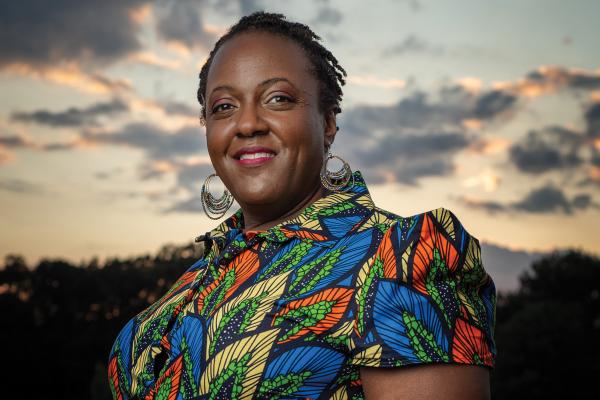WHEN I WAS 8 years old, I fried an egg on the street. Well, I tried to fry an egg on the street. It had been a particularly brutal summer in Florida. On the days when the playground slides were too hot to go down, my mom would say, “It’s hot enough to fry an egg on the sidewalk!” I kept my eyes glued to that splattered yolk for two hours until a car tire brought the grand breakfast experiment to an end. Frying eggs on sidewalks was how I learned to conceptualize extreme heat.
When it comes to describing climate change urgency in Black communities, Heather McTeer Toney taps into something simple: streetlights. In Before the Streetlights Come On: Black America’s Urgent Call for Climate Solutions, she writes that when she was growing up, kids could play all day outdoors, but they had to be home “before the streetlights came on.” As twilight settled in and streetlights started to flicker, kids would call out, “Hurry up, we ain’t got all day!”
“Right now, that same call to action is carried in the waves of massive hurricanes, on the winds of devastating firestorms, and in the uncharacteristic heat of winter,” McTeer Toney writes. Using a familiar metaphor, she issues a call to action of her own.
Climate change and environmental justice is not foreign to McTeer Toney or the communities she writes about. At age 27, she was the first female and youngest person to serve as mayor of Greenville, Miss., where she was born and raised. As mayor, she brought the city out of debt and established sustainable infrastructure repair. For three years, she led the Environmental Protection Agency for the southeastern United States. While at the global nonprofit Environmental Defense Fund, she addressed environmental policy and community organizing within and beyond the U.S. This spring, McTeer Toney became executive director of Beyond Petrochemicals, a campaign to stop the rapid expansion of petrochemical and plastic pollution, particularly in the Ohio River valley and along the Gulf Coast.
McTeer Toney and her family attend Oxford University United Methodist Church in Oxford, Miss. I spoke with her by phone about her work, her book, and the hope her faith demands. — Christina Colón
Read the Full Article

